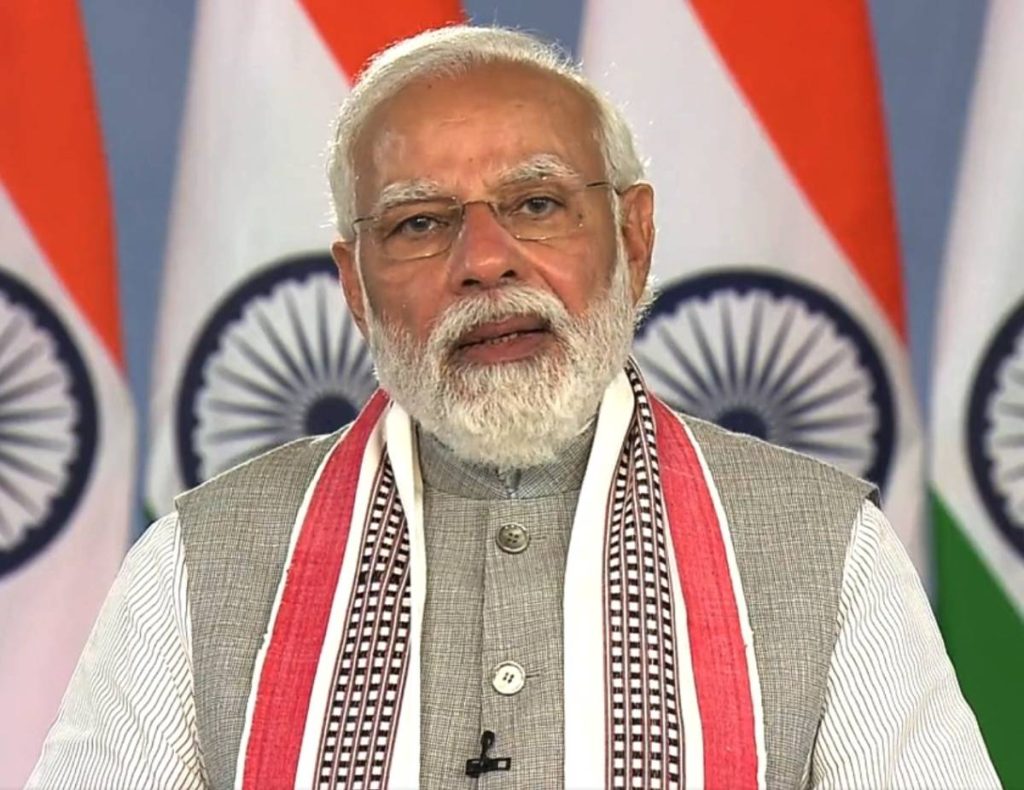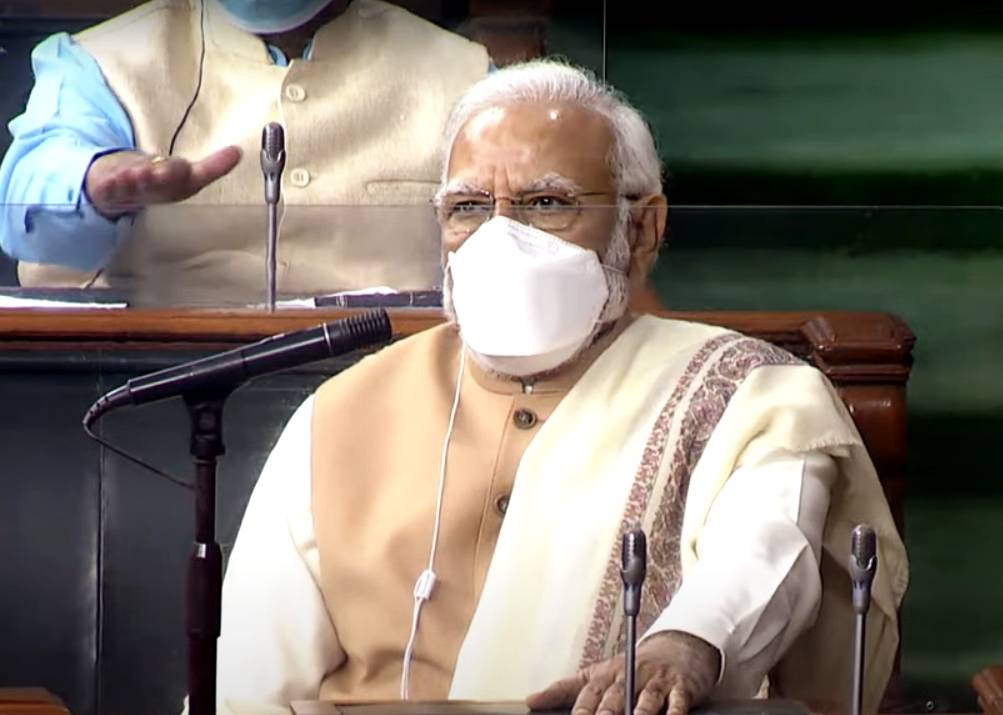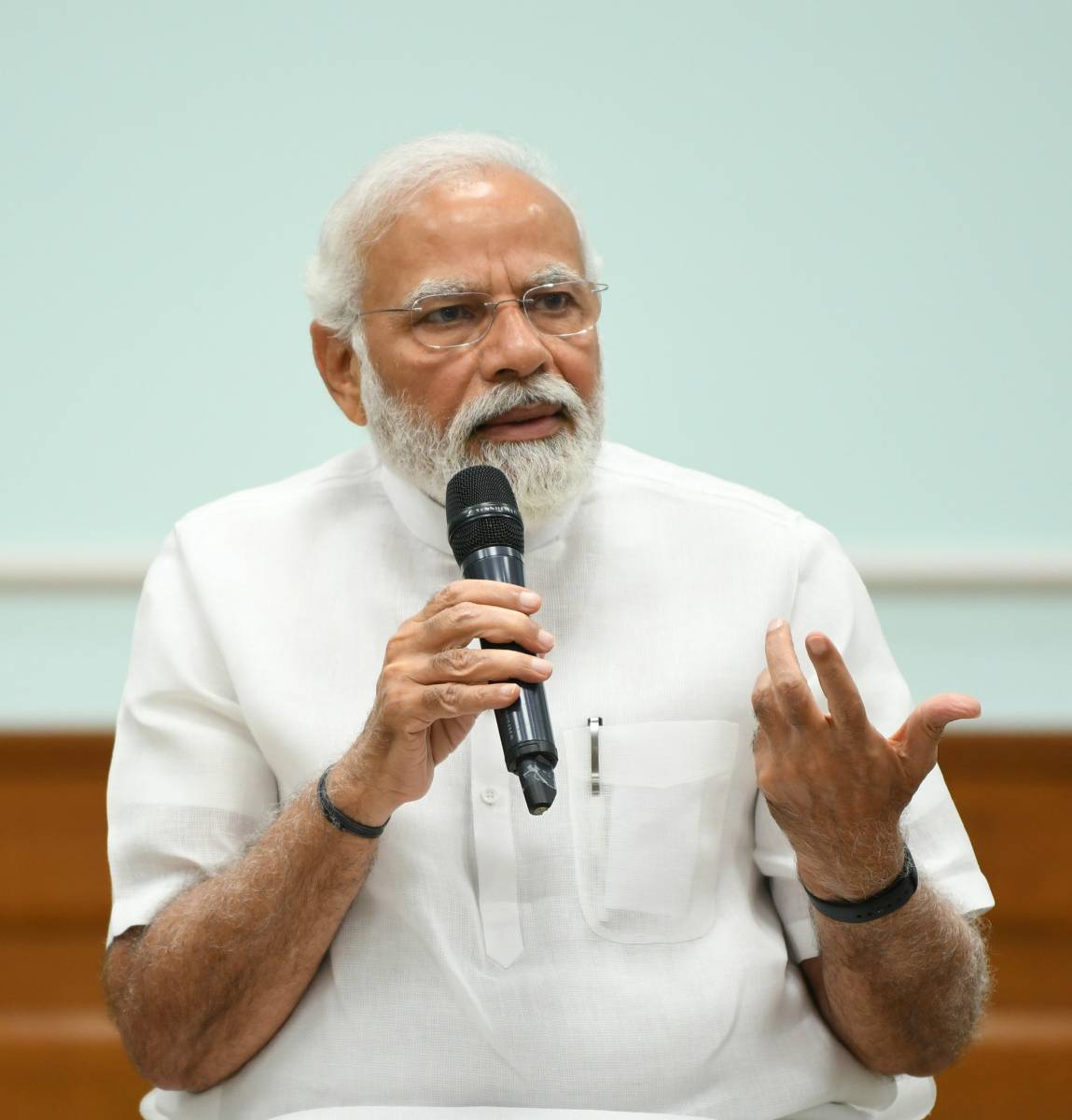Prime Minister Narendra Modi asked government secretaries to stop thinking and working in isolation, reports Asian Lite News
Prime Minister Narendra Modi on Saturday directed all secretaries of the government to “stop working in silos”, underlining that all ministries came together to combat the pandemic, media reported.
The prime minister met more than 85 senior bureaucrats on Saturday, the eighth meeting with government secretaries since 2014, according to a Hindustan Times report.
According to an official present at the meeting, he asked secretaries to, “Stop thinking and working in isolation”, the HT reported.
An official who did not want to be named also pointed out that apart from these large meetings with the top bureaucracy, the prime minister has also held seventeen meetings with sectoral groups of secretaries — panels tasked with preparing long-term goals and vision in entire sectors.
The 4-hour-long meeting on Saturday also assumed importance as it was held at the beginning of the new financial year with the country emerging from the Covid-19 pandemic.
The prime minister emphasised, according to two officials present in the meeting, that “the entire government must approach complex problems to tackle them”.
According to one of the officials mentioned above, Modi spoke at length about ‘Vision 2047’, which is the government’s roadmap for what the PM describes as ‘Amrit Kaal’ — the period between the 75th and the 100th anniversary of Independence. Last month, the prime minister has formed a group of secretaries to prepare the vision document in various sectors to be pursued during this ‘Amrit Kaal’.
Secretaries need to meet other ministries, stakeholders — both inside and outside the government structure — and all those involved in key focus areas before the vision documents are prepared, the prime minister said during the meeting, according to the official.
The official said the prime minister also laid emphasis on sharing the roadmap with not just states, but districts as well. “He pointed out that the states and the district administrations too, have a major role to play for implementing the vision documents for harnessing India’s potentials during the next 25 years,” said the second official mentioned above.

Reforms needed in bureaucracy
In his speech ‘Three Warnings’, Dr Ambedkar had said: “On 26th January, 1950, India will be an independent country. What would happen to her independence? Will she maintain her independence or will she lose it again? What perturbs me greatly is the fact that not only India has once before lost her independence, but she lost it by the infidelity and treachery of some of her own people.”
When we analyze the situation today, we can infer that India’s below par performance in totality is also the consequence of the corrupt ways and ‘treachery’ of many.
Speaking about the role of the political parties Dr. Ambedkar, in his last address to the Constituent Assembly, had warned that “If the parties place creed above country, our independence will be put in a jeopardy a second time and probably be lost forever”.

Under our constitution the elected executive has been vested with paramount powers, but this most important organ has unfortunately degenerated profoundly. Generally, politicians have worked only to further their self- interest and that of their parties at the pyrrhic cost of callously undermining public interest.
Whereas people are aware of the serious flaws that have crept into our political system whose rot and decay has to be arrested urgently, the other important instrument of governance, the bureaucracy is also not helping the cause. Our former President, Pranab Mukherjee, had asserted that “Bureaucracy is the biggest hurdle of our development and we must rectify it”. The problem is that these observations have repeatedly come from the highest levels, but still no corrective measures have been attempted and whatever changes were implemented turned out to be cosmetic in nature only.
They did not succeed in altering even the slightest — leave alone radically changing the bureaucratic culture. It is not that everyone in the system is dubbed corrupt or rotten but unfortunately holistically, the bureaucracy is not being transformative. Instead, it is mired in inefficiency, apathy and a culture of non-performance. This must change immediately as their role is critical today — in the current dismal scenario.
Being the most vital and a permanent part of the governance system of our country, it has to perform efficiently. If it continues to remain inept and corrupt, it will derail the spasmodic efforts of the political establishment to improve the state of the nation.
The job of the executive was to ensure efficient implementation of the laws passed by the legislature and to provide honest, transparent and just governance. Unfortunately, the famed steel frame, the Indian Administrative Service (IAS) seems to have corroded and has either joined the corrupt bandwagon or has withdrawn totally into a shell, where it hears nothing, sees nothing, says nothing. This culture of inaction has cost the nation dearly. They were mandated to work honestly and efficiently to uphold the rule of the law and ensure that the politicians act according to the rule book. Unfortunately, they now seem to be in cahoots with the political class and instead of opposing/resisting their wrong doings, are pro-actively colluding with them and negating the rule of law.
The bureaucracy has to be reminded that they are being paid by the public so they have to reorient their loyalty towards the people and their game changing role as servants of the hapless public. Twenty-five years ago, in the state of Uttar Pradesh, a group of conscientious IAS officers decided to do so. They launched a crusade against corruption and the lack of accountability rife in their cadre. Despite virulent opposition, they went on to elect the “three most corrupt IAS officers” amongst them through a secret ballot. That experiment had a salutary effect on the system -for some time. However, these radical one-time experiments cannot solve the problem. The time has come for the bureaucracy to do some serious soul searching, check the culture of corruption and gross selfishness and instead become accountable to the people and promote their welfare ceaselessly.
(This report contains contribution from Vijay Shankar Pande, a former Civil Servant)

Leave a Reply